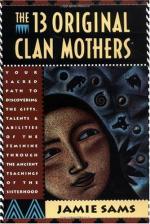|
This section contains 686 words (approx. 3 pages at 300 words per page) |

|
New England and Chesapeake Colonies
Summary: The 17th century establishment of New England and the Chesapeake Colonies was based upon religious freedom from England and seeking new opportunities. Eventually, New England and the Chesapeake Colonies grew apart, differing on slavery as their economies took different paths.
During the 1600s, England sent colonies to America, never predicting a new country to be formed. Seeking wealth and prosperity, early English colonies began new lives in search of religious freedom, economic opportunity, and independence. Though sprouting from England, colonies in the New World seemed completely different in the mind-set of life in America. The colonies in New England and the Chesapeake region exemplified the many differences in lifestyle and culture, due to the separate intentions of their founding fathers.
The New England and Chesapeake colonies were both formed by English settlers during the 1600s. The Chesapeake colonies, sent by England's King James 1st, formed in 1607, to set up a trading post in the new world and search for gold. In 1620, a group of puritans led by John Winthorp, founded the New England colony. They wanted to break away from England's Angelican Church due to philosophical reasons. Many...
|
This section contains 686 words (approx. 3 pages at 300 words per page) |

|


